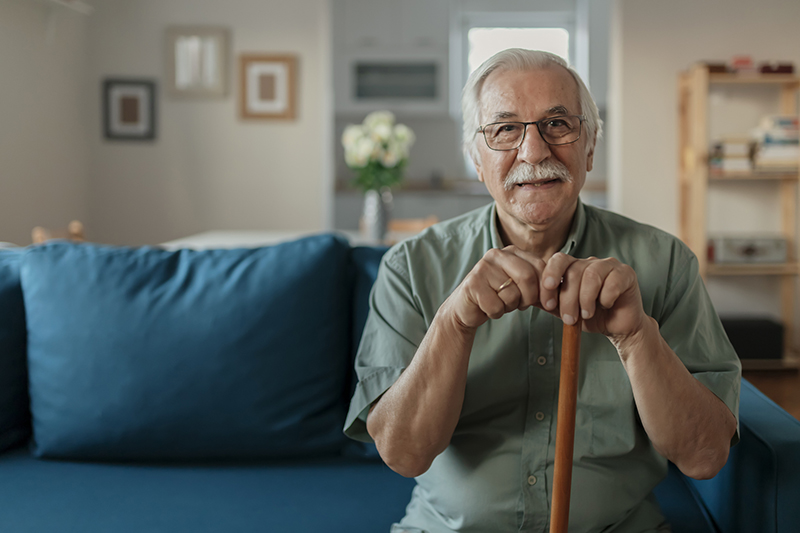
Fall prevention for older adults is important to ensure safety.
Fall prevention for older adults age 65 and older is vitally important. Up to one out of four seniors will experience a fall, and after falling, the possibility of falling again doubles. Older adult falls often bring about emergency room visits, fractures, head injuries, and hospitalizations – not to mention the costs associated with falls: as much as $50 billion per year.
Falls tend to be more common in older adults for many different reasons:
- Poor vision
- Challenges with balance and mobility
- Medication side effects
- Lower body weakness
- Foot discomfort or pain
- Arthritis
- And more
What exactly can you do in order to assist the older adults you love protect against a dangerous fall? There are several actions you can take. Encourage your senior loved ones to:
- Have routine eye exams. An older adult should arrange an eye exam on an annual basis, and more often if suggested by the ophthalmologist. It might also be smart to replace progressive lenses or bifocals with two pairs of glasses: one for nearsightedness and another for farsightedness.
- Improve strength and balance. There are a wide variety of exercises aimed at enhancing balance and strengthening the leg muscles. DailyCaring offers a quick video with some simple suggestions to help you get started. Consult with the senior’s doctor for approval, and then encourage the older adult to add these exercises into his or her day-to-day routine.
- Schedule a medical checkup. The primary care physician can help reduce fall risk through a routine checkup. For instance, ask the physician to review the older adult’s medications (including OTC meds) for side effects such as sleepiness or dizziness. He or she can also evaluate a senior’s particular fall risk and offer suggestions to reduce that risk. Also ask the doctor about vitamin D supplements; insufficient quantities of vitamin D can weaken bones and result in an enhanced chance of a fracture if a fall does occur.
- Perform a fall risk walk-through. Relatively innocuous items in the home can conceal a hidden danger for older adults. Take a walk through the older adult’s house to check for throw rugs, low tables or other furniture, missing handrails along the stairways, inadequate lighting, and any clutter obstructing walking paths.
- Call Abby Senior Care. Our highly trained care staff are available to perform a fall safety assessment to look for and then make suggestions for changes to lessen fall risk. We can also help with mobility, safe bathing/showering and transfers, medication reminders, and many other services to keep seniors safe from falls.
If an older adult does have a fall, regardless of whether it doesn’t seem to have resulted in injury, contact his or her physician for an assessment and further recommendations to prevent another fall.
For a free in-home consultation, connect with Abby Senior Care’s aging care experts any time at 303-699-8840. We are able to design a customized plan of care to manage any challenges and also to make life safer and more enjoyable for seniors at home.
Whether the need is for just a couple hours of respite care each week or 24-hour live-in care, Abby Senior Care, providers of senior home care in Denver and the surrounding communities, is here with the solution you need. Email us today!
